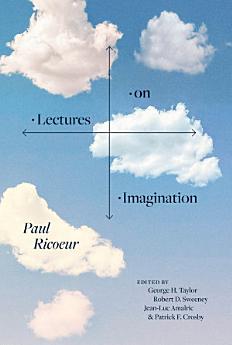Lectures on Imagination
mar 2024 · University of Chicago Press
E-book
384
Strony
family_home
Odpowiednia
info
reportOceny i opinie nie są weryfikowane. Więcej informacji
Informacje o e-booku
Ricoeur’s theory of productive imagination in previously unpublished lectures.
The eminent philosopher Paul Ricoeur was devoted to the imagination. These previously unpublished lectures offer Ricoeur’s most significant and sustained reflections on creativity as he builds a new theory of imagination through close examination, moving from Aristotle, Pascal, Spinoza, Hume, and Kant to Ryle, Price, Wittgenstein, Husserl, and Sartre. These thinkers, he contends, underestimate humanity’s creative capacity. While the Western tradition generally views imagination as derived from the reproductive example of the image, Ricoeur develops a theory about the mind’s power to produce new realities. Modeled most clearly in fiction, this productive imagination, Ricoeur argues, is available across conceptual domains. His theory provocatively suggests that we are not constrained by existing political, social, and scientific structures. Rather, our imaginations have the power to break through our conceptual horizons and remake the world.
The eminent philosopher Paul Ricoeur was devoted to the imagination. These previously unpublished lectures offer Ricoeur’s most significant and sustained reflections on creativity as he builds a new theory of imagination through close examination, moving from Aristotle, Pascal, Spinoza, Hume, and Kant to Ryle, Price, Wittgenstein, Husserl, and Sartre. These thinkers, he contends, underestimate humanity’s creative capacity. While the Western tradition generally views imagination as derived from the reproductive example of the image, Ricoeur develops a theory about the mind’s power to produce new realities. Modeled most clearly in fiction, this productive imagination, Ricoeur argues, is available across conceptual domains. His theory provocatively suggests that we are not constrained by existing political, social, and scientific structures. Rather, our imaginations have the power to break through our conceptual horizons and remake the world.
O autorze
Paul Ricoeur (1913–2005) was the John Nuveen Professor in the Divinity School, the Department of Philosophy, and the Committee on Social Thought at the University of Chicago. He was the author of many books, including Memory, History, Forgetting, Oneself as Another, and the three-volume Time and Narrative, all published by the University of Chicago Press. George H. Taylor is professor emeritus of law at the University of Pittsburgh. Robert D. Sweeney (1929–2016) was the Don Shula Chair in Philosophy at John Carroll University. Jean-Luc Amalric teaches at the CPGE Arts and Design in Nîmes and the Research Center for Arts and Language (CRAL), EHESS, Paris. Patrick F. Crosby (1948–2020) was an independent Ricoeur scholar
Oceń tego e-booka
Podziel się z nami swoją opinią.
Informacje o czytaniu
Smartfony i tablety
Zainstaluj aplikację Książki Google Play na Androida i iPada/iPhone'a. Synchronizuje się ona automatycznie z kontem i pozwala na czytanie w dowolnym miejscu, w trybie online i offline.
Laptopy i komputery
Audiobooków kupionych w Google Play możesz słuchać w przeglądarce internetowej na komputerze.
Czytniki e-booków i inne urządzenia
Aby czytać na e-papierze, na czytnikach takich jak Kobo, musisz pobrać plik i przesłać go na swoje urządzenie. Aby przesłać pliki na obsługiwany czytnik, postępuj zgodnie ze szczegółowymi instrukcjami z Centrum pomocy.







